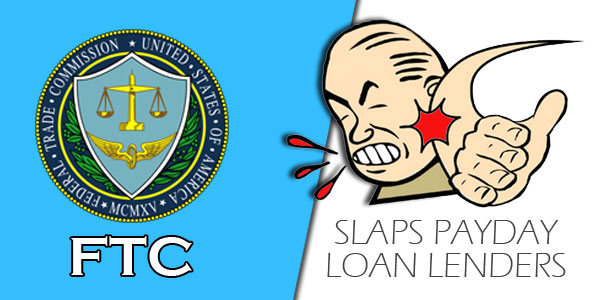Next time, you plan to borrow a short term loan from payday loan lenders, think again. According to the consumer watchdog Federal Trade Commission, a few payday loan lenders scammed consumers and ripped off $49 million dollars through unauthorized transactions. The U.S district in Missouri has temporarily halted the business of those lenders and frozen their assets for doing shady business for several days. It has also given permission to the FTC to check companies' premises and documents thoroughly.
How payday loan lenders milked forty nine million dollars
The accused payday loan lenders bought confidential information of consumers from third parties. Once these people received consumers' information, they created fake loan agreements. Thereafter, they deposited money into consumers' bank accounts and started withdrawing money from them. The poor consumers didn't even know about the scheme of these lenders. Neither did they authorize these scammers to withdraw money, which is a strict violation of federal laws.
According to Jessica Rich (Director of the FTC’s Bureau of Consumer Protection), accused payday loan lenders have thrown cash-trapped consumers into a pool of trouble. The FTC will never tolerate this. They will try out all the steps in order to stop illegal activities of payday loan lenders.
In total, the accused lenders issued $28 million to consumers through various kinds of illegal activities, and, in return, they milked $46.5 million from consumers' bank accounts.
Timothy Coppinger and Frampton Rowland III - The master minds
Timothy Coppinger, Frampton Rowland III and lots of other companies they operated, purchased consumers' information from data brokers. They deposited around $200-$300 into bank accounts of consumers without informing them. Thereafter, they started making automatic withdrawals biweekly. This included a reoccurring finance charge of around $90 wherein no money was going towards lowering the principal amount.
The accused companies called innocent consumers (this included the ones who have once filled out forms and given bank account details to websites offering cash advance loans) and demanded for payments. They called or sent emails to borrowers and asked them to pay off loans that were issued to them. It is another matter that these borrowers never applied for the loans in the first place. This was not the end. The scammers even lied about the overall cost of the loan. They produced fake statements, loan documents, ACH authorizations, etc to prove that consumers have indeed taken out the loans.
Sometimes, consumers tried to close bank accounts to put an end to unauthorized withdrawals. The accused lenders sold those loans to debt buyers so that consumers can't sleep in peace. The debt buyers called and harassed these lenders so that they can never live in peace.
As per the FTC, the lenders violated the following Acts:
- The Truth in Lending Act
- The FTC Act
- The Electronic Funds Transfer Act
If all goes well, the FTC will try to stop the business of the accused payday loan lenders permanently.
What you should do to avoid payday loan scams
Knowledge is the ultimate weapon to fight with payday loan borrowers. So, always check out the payday loan laws in your state. Scan your bank account statements as well to find out any discrepancy. If you need any help regarding loan payments, call at (800) 530-OVLG. You can also call at 1-877-382-4357 to lodge complaints against lenders.









